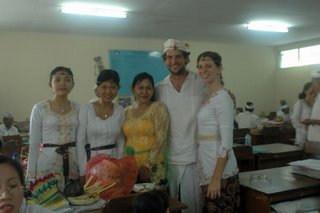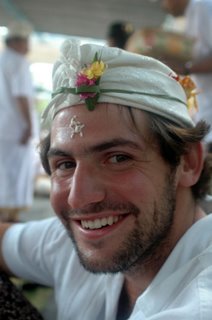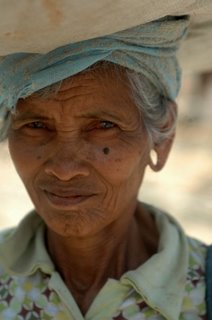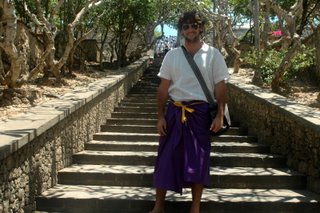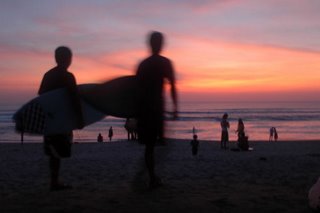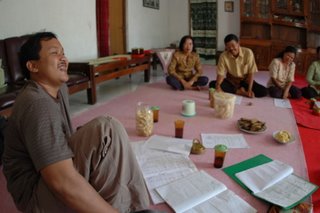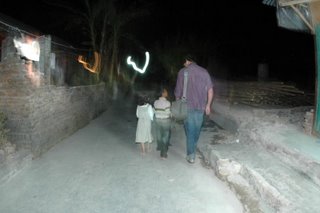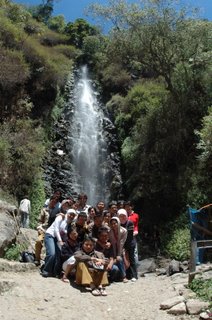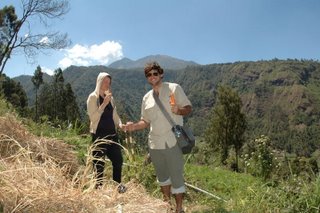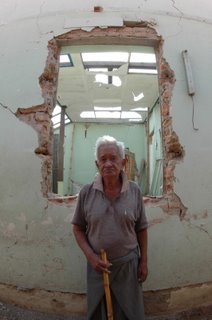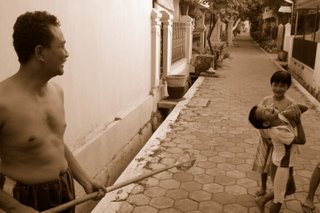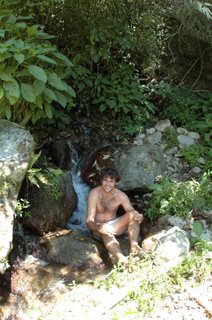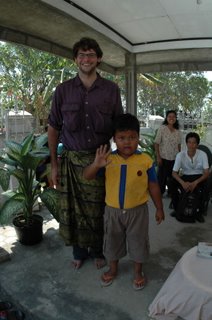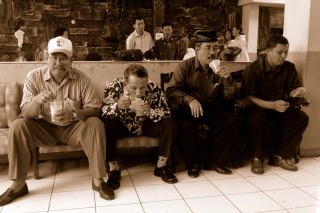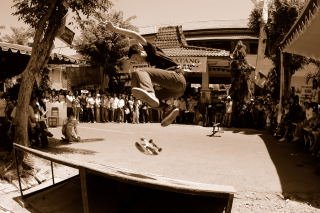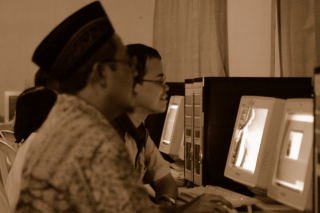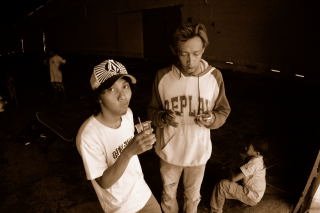In my classes at school, of which there have been seven in two days, I introduce myself to the forty or so students per class, and then write “U.S.A.” on the whiteboard. I ask, “When you see this word, what is the first word that you think of?” The responses that I get have been, to varying degrees, entertaining, funny, and in some cases, provocative. The usual first response is “big” or “beautiful,” followed shortly by “White House,” “Hollywood country,” or “FBI.” After the rabblerousers have had their turn, the introspective girl with the glasses and long bangs will posit “cruel” or “modern and liberty.”
In the late nineteenth century, the Dutchman CLM Peders wrote, “I interpret the natives’ reluctance to attend school not as laziness, but as carelessness and thoughtlessness about their futures. The main reason for this is that they do not use their brains, because they have not been taught to do so.” Despite such colonial muttering, historians have shown that many native Indonesians actually valued their educations quite highly. According to Adrian Vickers, “Some were grateful, looking to the Dutch as examples of all that was modern.”
In Indonesia, modernity apparently still maintains positive and as yet unreached connotations. Where in the U.S. we’ve moved on to post-modernism, and then some, I find it fascinating that “Modernity” is still considered a holy grail of sorts.
After my introduction, I give the students an opportunity to ask me questions. Again, most are banal, ranging from “what is school in America like?” to “are you married?” Yesterday, though, a young man named Karisma asked a great question that jarred me a bit. “Are you proud of American culture?” Well, that’s a tough one, K-bone.
I am implicitly expected to embody stereotypical America, and I have embraced the role to a certain extent, as might be evident from my jingoist ranting in previous entries. But there are also times when a massive wave of depression washes over me when I think of what WE have done.
For instance, tonight’s regional high school basketball tournament at the local stadium, where Madiun was playing Surabaya, East Java’s capital city. I was amused and horrified to see that the tournament was sponsored by Surya, one of the country’s biggest cigarette manufacturers – apparently I haven’t yet become entirely accustomed to being bombarded by tobacco product placements, which are literally everywhere.
The tournament was testament to what could be called modernity; high school boys wearing bootleg Nike shoes and uniforms shooting freethrows to the unrelenting pulse of Jock Jams Volume Seven, only superficially oblivious to the halftime dancers – a troupe of local women with enticing bodies and scanty, skintight white outfits – shaking rhythmically out of unison. Remember please, this is a highly conservative Muslim community.
Only seventy years ago, over ninety percent of native Indonesians lived in the countryside, while over seventy-five percent of the Europeans here lived in the cities. The colonial rulers needed to be able to keep social groups apart, keep the locals from developing common interests, such as anti-imperialism. The main mechanism by which the Dutch achieved this was through institutionalizing the concepts of race. Today, as I’ve mentioned in previous entries, race – or what I have termed the Bule (white person) Effect – is still an omnipresent reality of everyday life, especially in Madiun, where Bule sightings are few and far between.
I’ve made friends with some local guys here, and we spend the evenings – Madiun essentially shuts down by 9PM – riding motorbikes from rumah makan (literally eating house) to mall to the city square. The guys own a mechanics shop in town, and were friendly with Mr. Richard Thompson, the Fulbrighter who was in Madiun last year. When I am not hailed as “BULE!” while riding my motorcycle – bought second hand off Richard – around the city, I am inevitably called “Richard.”
Friendship with the Indonesians here can be a touchy matter, though. After an unsuccessful attempt at trying to use my Mac laptop at the local Warnet (internet shop) today, I briefly exchanged numbers with one of the shop owners after he promised that he would call if they found a solution – highly unlikely. In any case, after returning from the basketball game, I found the following SMS (text message) waiting on my phone: “Good evening, do u have friend in here, if no friend, u can plan/come to my home, sorry about internet I cant help u. am had married, how about u? I want to be friend u.”
Although it may sound hyperbolic, I am starting to see myself as one more commodity in the race to develop, a product to be consumed and shown off like a pair of Nikes. As Vickers wrote, “The tragedy of Indonesian history is its continued pattern of exploitation, lives lost and opportunities squandered.”
Earlier in the evening, my neighbor brought me a bowl full of picture-perfect ripe mangoes. After one of my new friends dropped me off from the game, I dove into the yellowness, sucking every rind dry, consuming it like a pound of flesh.


